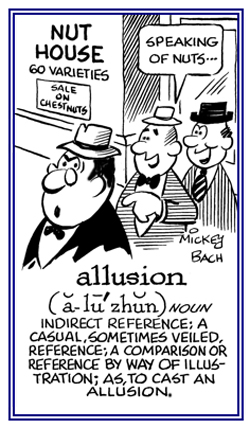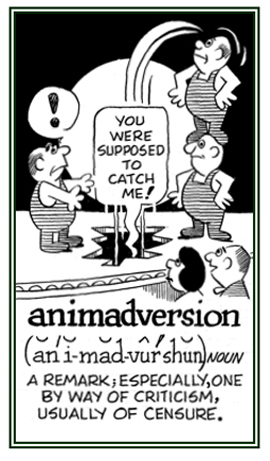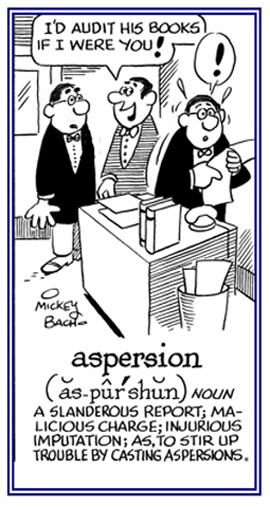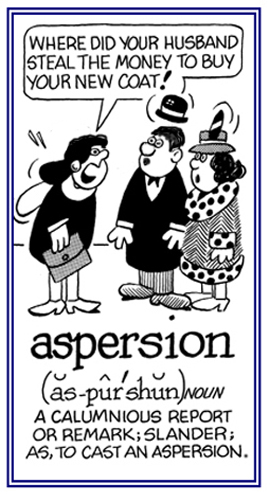-sion, -sions
(Latin: a suffix found at the end of some words that make certain verbs become nouns.)
If you need any information regarding the pronunciation system being used for the words in this unit, click on this Pronunciation Chart for a presentation of simplified American-English pronunciations.
The abrasion on Rodney's knee finally healed and the abrasion on Nancy's elbow has been healing very well.
2. Erosion caused by rubbing or scraping, as of rock by wind, water, etc.: Years of abrasions had worn the surface of the stones so they are now smooth.The abrasions on the cliff side were examples of the destructive powers of natural resources, winds, and water.
3. Etymology: from Medieval Latin (about A.D. 700 to A.D. 1500) abrasionem, abrasio, "a scraping"; from Latin abradere, "to scrape away, to shave off"; from ab-, "off" + radere, "to scrape" or "to rub".The unexpected abscission of the speeches at the rally were welcomed by the crowd.
2. In botany, the normal separation of flowers, fruit, and leaves from plants or the natural process by which leaves or other parts are shed from a plant: In the fall, people can see the abscissions of the leaves as they fall from the trees and are scattered on the ground.The abscission zone is a layer of weak, thin-walled cells that form across the base of a plant part where the break eventually occurs.
2. The formal acceptance by a state of an international treaty or convention: Finally the war was over and an accession or confirmation of this was signed by all the countries involved.
3. Agreement or consent, usually when given unwillingly: Some of the politicians in the country had to accept the accession that the taxes would have to be raised more than they had planned in the beginning.
4. An item added to a collection: Over the years, Jack had added new accessions to his collection of novels by various authors and so his bookcase was full!
5. The right of an owner to add to some property by natural growth or improvement: The proprietor of the estate on which Henry built his house was not allowed accession to the acreage along the boarder.
6. The act of attaining or gaining access to a new office, a right, or a position; for example, a throne: After passing extensive examinations, accession as the principal of the high school was given to Marc Smith.
2. The property of sticking together, as of substances or tissues; the attachment of one thing to another: Glue and paste provide the means of adhesion as well as adhesive tape.
3. The grip of a wheel on a track, etc. which is produced by friction, or the friction itself: It was difficult to convince the elderly to write e-mails with the computer considering their adhesion to using a pencil or pen and paper for written communication.
4. The attachment to someone or an organization by remaining with it as a partizan, a supporter, or a follower: Patricia was honored for her adhesion as a worker for homeless people for so many years.
5. A mass of fibrous connective tissue in the body that joins two surfaces that are normally separate: Adhesions are usually scar tissues that have formed after an inflammation of some part of the anatomy, or the natural healing process that takes place after surgery.
Some abdominal adhesions bind loops of obstructions together and so they usually require the surgical cutting of the fibrous tissue in order to free them of the blockages.
Synthetic nanoadhesive mimics sticking powers of gecko and mussel
Geckos are remarkable for their ability to scurry up vertical surfaces and even move along upside down.
Their feet adhere temporarily, coming off of surfaces again and again like a sticky note; but put those feet underwater, and their ability to stick is dramatically reduced.
Water is an enemy of adhesives, which typically do not work well in wet environments; think of how long a bandage on your finger lasts. Now two Northwestern University biomedical engineers have successfully married the gecko’s adhesive ability with that of an animal well known for its sticking power underwater: the mussel.
Combining the important elements of gecko and mussel adhesion, the new adhesive material, called “geckel”, functions like a sticky note and exhibits strong yet reversible adhesion in both air and water.
“I envision that adhesive tapes made out of geckel could be used to replace sutures for wound closures and may also be useful as a water-resistant adhesive for bandages and drug-delivery patches.
Such a bandage would remain firmly attached to the skin during bathing but would permit easy removal upon healing,” said Phillip B. Messersmith, professor of biomedical engineering at Northwestern’s McCormick School of Engineering and Applied Science.
A gecko’s strong but temporary adhesion comes from a mechanical principle known as contact splitting.
Each gecko foot has a flat pad that is densely packed with very fine hairs that are split at the ends, resulting in a greater number of contact points than if the hairs were not split. In fact, the diameter of one of the split hairs is as small as 200 nanometers.
More contact points between hairs and surface result in a significant increase in the strength of adhesion. Flies, bees and other insects also use this strategy.
2. The right, permission, or the price required or paid to enter or to access some activity: Because he was 21 Jessy was allowed admission to go see the movie that was reserved for adults only.
Mary said the admission to the musical cost more than she could afford to pay, so she was not allowed admission to attend the performance.
3. A confession, as of having committed a crime: James was completely silent and nodded his head when asked if he had stolen the money which was naturally interpreted as an admission of his guilt.When the suspect’s admission of the truth about his involvement in what really took place at the bank robbery, the police were able to determine what had really happened there.
4. A voluntary acknowledgment of truth: Mark's spontaneous and unrequested admission to exceeding the speed limit resulted in a warning instead of a ticket.2. The pouring of a natural fluid on the body or any of its parts for therapeutic purposes: David was getting a cold affusion by a doctor in order to reduce the temperature of his fever and to calm his nervous condition.
2. Deliberately unfriendly behavior: Sometimes aggression is shown by some football fans when their team loses a game and they verbally attack the supporters of the winning side.
3. The act of initiating hostilities: Because Timmy wasn’t happy at home, he turned his aggression towards the other kids at school by pushing them, taking their ball away from them during a game, or calling them bad names.
4. A disposition to behave contentiously or offensively: James had a very unhappy childhood while he was living in a bad environment and so he expressed feelings of aggression when dealing with other people.
5. A feeling of hostility that arouses thoughts of attack: A sensation of aggression developed in Jerry when he was falsely accused of stealing money from a woman's purse at a restaurant.
6. Etymology: from ad-, "to" + gradi, gressus, "to step"; from gradus, "a step".
An allusion is never an outright or explicit designation of a person or anything that the speaker seems to have in mind.
The history book about America which Sam was reading made a brief allusion to the ancient Greek idea of what a democracy was.
Heidi made an allusion to her first marriage, but she said nothing more revealing about it.
2. A play on words, a word-play, a pun (now considered obsolete): The editor of the dictionary was delighted to find out about a book of allusions with which he was unfamiliar.3. A covert, implied, or indirect reference; a passing or incidental reference: The main thing to remember is that an allusion is a brief hint or a quick mention of something which the readers or listeners are expected to have some knowledge about.
4. Etymology: from Latin allusionem, allusio, "a playing with, a reference to"; from allus-, a stem of alludere, "to play, to joke, to jest."

Go to this Word A Day Revisited Index
so you can see more of Mickey Bach's cartoons.
2. A critical comment, or comments; especially, those rebuking or shaming someone: The vegetarian expressed her animadversion about people whose diet is carnivorous because she believes they don't consider what is happening to animals that are being sacrificed to satisfy the desires of humans.


Go to this Word A Day Revisited Index
so you can see more of Mickey Bach's cartoons.
2. Fearful or uneasy anticipation of the future; dread: Many people have apprehensions regarding the coming times in the world because of the many continuous wars and terrorist attacks among so many countries.
3. The ability to understand something directly and immediately: Finally the moment of apprehension arrived when the students had their individual questions answered by the teacher.
4. Acceptance of or receptivity to information without passing judgment about its validity, often without complete comprehension: Sometimes the lectures were very difficult to understand and the apprehension of the content was quite meager, but the students did their best anyway at believing what the professor said!
5. A view, opinion, or idea on any subject: The apprehensions the designer had about modernizing the couple's home had to be discussed in detail before they were convinced of its necessity.
6. The act of arresting, seizing, or capturing; a seizure; an arrest: The apprehension of the culprit was published in the local newspaper and soon all the neighbors knew who it was and were glad that he wasn't running around town anymore.
2. A situation in which someone or something has moved to a higher or more powerful position: The newspaper article told about Chuck's ascension to CEO (Chief Executive Officer) of the company.
2. The act of making slanderous, damaging, or defamatory remarks: Laura said that such vehement aspersions about the store's products couldn't be ignored.
The politician tried to talk about his political opponents respectfully and not to cast any aspersions about them.
3. Sometimes the act of sprinkling holy water by a minister as in baptism: Mack's little baby received aspersions by the priest.
4. Etymology: from late Middle English signifying the sprinkling of water; especially, at baptism; from Latin aspers, "sprinkled"; from the verb aspergere; from ad-, "to" + spargere, "sprinkle".


Go to this Word A Day Revisited Index
so you can see more of Mickey Bach's cartoons.
2. A sudden change in the course of a river; usually, from one channel to another one: After months of rain and strong winds, the meandering stream went through an avulsion by rapidly altering its route and going around the back of the farm and not by the front as before.
3. The violent movement of soil from one property to another as a result of a flood or a shift in the course of a boundary stream: The earthquake caused an avulsion in the coastal area of California and some land sank considerably in some places and created more land in other areas.

